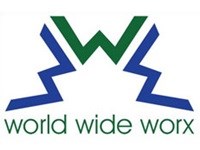
Top stories






More news


Marketing & Media
Ads are coming to AI. Does that really have to be such a bad thing?













The Digital Barometer also adds a powerful digital segmentation layer to TGI media. It allows for each digital segment to be analysed against media, product categories and brands, and for competitor analysis. This assists in developing customer value propositions that create differentiation.

This is one of the new research products being launched by Ask Africa in 2014. Others include Target Group Index (TGI) Online and TGI Township, the Lite Data Collection, the Behavioural Sciences Package and Gateway.
Gaining knowledge of a target market is essential and Ask Afrika Group's TGI product suite is of great value to advertisers, media agencies and owners. TGI continues to expand its bouquet of offerings, and goes online. The TGI survey has seen the addition of the Why Code and the significant extension of the digital elements in the survey including digital readership. The survey is now also able to provide a deep view of the township market.
The selection and weighting of robust TGI samples is based on global best practice. The local TGI sampling design was subjected to an independent audit by UK based expert Tony Wearn, a former research director at the BARB. "TGI eminently qualifies as a high standard 'stratified random sample' that is, in itself, crucial to promote representativeness of the achieved sample," says Wearn.
The digital revolution is a worldwide phenomenon and it is vital for brand owners to understand the local digital market. The Digital Barometer provides a strategic view of technology sophistication in South Africa and it is to-date, the most in-depth digital analysis of the South African consumer undertaken.
The environment in which market researchers find themselves has changed dramatically over the past five years. Digitally based data collection methods have fundamentally changed the way in which survey data is collected. This evolution in technology meant that organisations struggling through the recession were able to insource a large portion of their market research activity to reduce costs. The downside of this strategy is that independence is lost, exposure to new ideas is limited and research rigour is compromised, as quick and dirty methods are used inappropriately.
The Lite Data Collection product transcends these limitations and provides quick, easy, cost-effective surveys that utilise new technology. Data is collected across any platform on any device. The benefit of collecting data in this way is not only a reduction in research costs or faster turnaround times, but it provides a better, more accurate way of measuring consumer behaviour. Digital data collection methods employed include, TAPI, PC online, Mobile Online, SMS, USSD, real time IVR and email surveys through a variety of customer care or sales channels.

Sometimes quick and easy is not the solution and brand owners require an in-depth psychological understanding of consumer behaviour. It is well documented that people cannot accurately articulate why they behave the way they do. In many cases, indirect measures of behaviour and preferences can give insights that are more accurate. Implicit association tests are a form of response time measurement that takes advantage of susceptibility to priming. This kind of measurement can help discover how well a target market is connected to a brand or product. It can identify connections with a brand that marketers were not aware of, and identify how well the connections one is trying to make are taking hold in the mind of the consumer. These connections can then be compared against competitors.
The behavioural sciences package measures both these non-conscious brand associations and emotional connections. Understanding emotional responses, in conjunction with other key rational measures, provides a more holistic picture of consumer behaviour and helps strengthen strategy development. Applications of the package include, customer satisfaction measurement, concept /product development testing, testing of brand communication elements / attribute testing, advertising development and testing (copy and print ad testing), brand personality development and assessment, package design, segmentation, and need/gap analysis.
There are so many ways to investigate and view a consumer and it is often difficult to know the best angle to take. The company has developed the Gateway product that provides a 360-degree view of the consumer. A synthesis of product, brand, service and motivational insights, it provides a complete, holistic view of the South African consumer integrating all of its benchmarks. Gateway will appeal to CEOs and marketing directors who want a single view of their consumer.